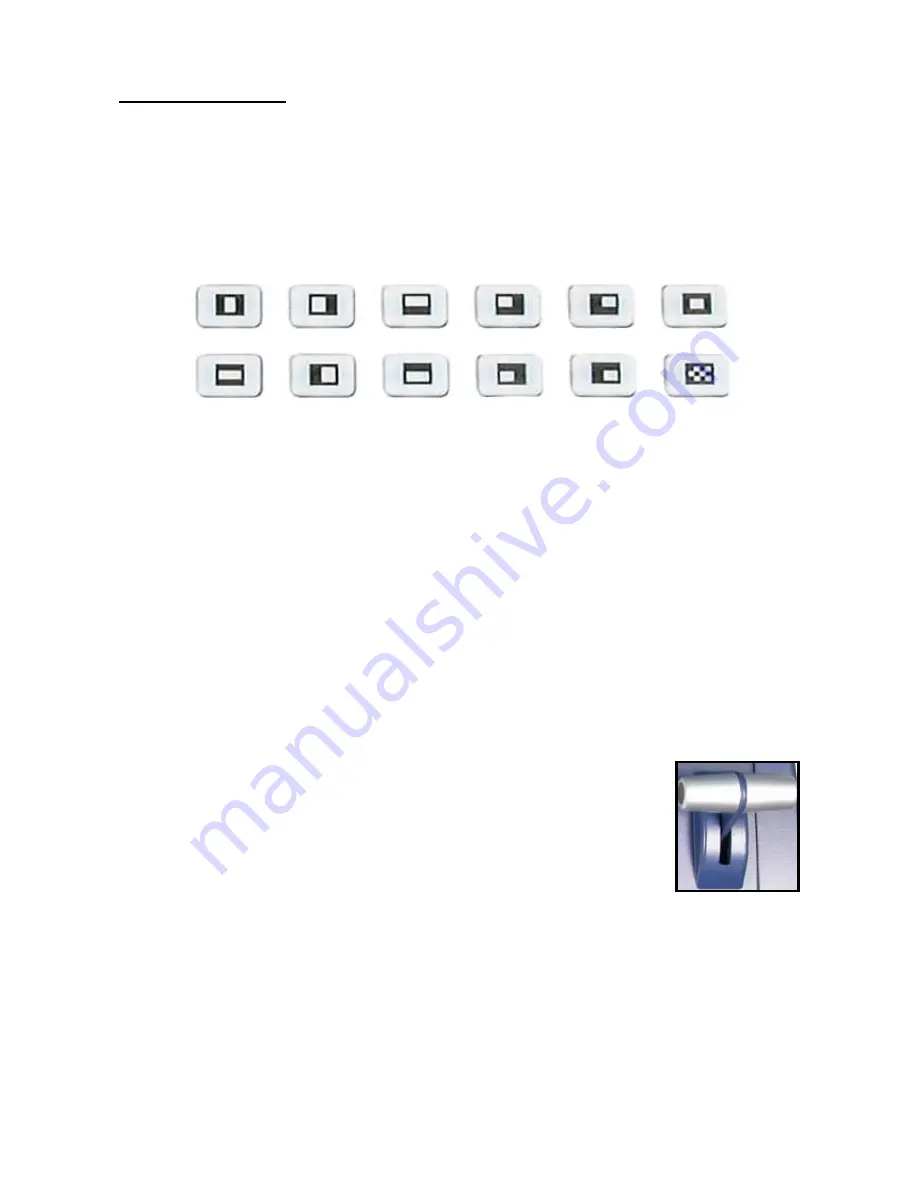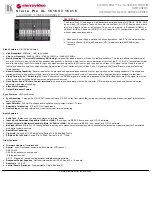
Using Transitions
The SE-500 can do 3 kinds of transitions: cut, fade, and wipe. The cut is a simple switch from one input
source to another, and can be accomplished by selecting a source on the Main Source Bus, and then
selecting a second one. One source is replaced by the next at the video output. Not flashy, not fancy,
nothing to customize, but gets the job done. In fact, if you watch a film or video, paying attention to
transitions, you’ll see that the cut is far and away the most often used transition.
When you want a transition that is more stylish or fancy, see the next section.
Selecting a transition: Fade, Wipe
First, some definitions:
A fade, also known as a dissolve, is a transition wherein all the pixels of one source are replaced by all the
pixels of another, at a smooth rate, and at the same time.
In a wipe transition, the change from one source to another happens along a predefined edge. It is like one
source is being pulled back or pushed on to the other.
But a picture is worth a thousand words, so...
Select a main source and sub source, select Wipe, or Fade from the buttons above, press “
Preview
” button
to see what it would like on program. Then, perform the actual transition manually by moving the T-bar up
and down. See below for a list of transitions and variations.
Playing a transition
The T-Bar is the traditional switcher device for performing transitions; it can be either
all the way up, all the way down, or anywhere in between. The up and down positions
are relative, meaning one position is before and one position is after the transition.
The T-Bar performs the selected transition between the selected sources as fast as
you move the T-Bar. And it performs as much of the transition as you want.
If no transition is selected, moving the T-Bar performs a fade between the selected
sources.
Playing a transition automatically
The auto transition can be performed by RS-232 or MIDI control. In the auto-take, there are three different
speeds you could select. For further detail please refer to the
RS-232
Remote Control Command
and
MIDI
Remote Control Command sections.
24
















































